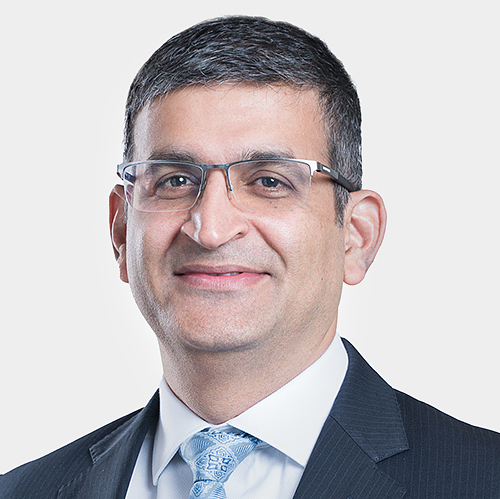Economics has always had a strange and much-debated relationship with money. For a long time, economists – including Nobel laureates like Merton Miller and Franco Modigliani – regarded money merely as a medium of exchange. But by building on the work of John Maynard Keynes and Hyman Minsky, economists have since moved beyond a narrow focus on the quantity of money to consider its structural influence on the real economy and the financial system.
A structural understanding of money and finance becomes even more important in an increasingly digitalized and cashless world, because there is a growing need for policymakers to operate not just as market fixers but as proactive market shapers. A cashless world not only changes people’s relationship with money and creates new opportunities for how it is managed or even conceived; it also puts new pressure on central banks to reimagine their role and become more innovative.
While plenty of attention has been devoted to experiments with central bank digital currencies, an even more important intervention is to create and shape a new digital infrastructure around interoperable payment systems. Given the structural component of capital, this can increase bank competition, inclusion and accessibility, and possibly offer new tools for managing economies in the face of crises.
Cashless transactions are growing faster than ever as reliance on physical cash declines. Consumers, businesses, and governments clearly prefer cashless technology’s cost-effectiveness and ease of use. Tap-based payment systems, once confined to the realm of tech-savvy urbanites, now pervade even the most rudimentary economies. Interoperable payment systems are quickly emerging as the core economic infrastructure of the digital-era economy, marking a departure from the past 2,000 years of government-issued physical cash.
As with all technological change, this one is not neutral. It has a momentum of its own, and if policymakers do not direct it in the public interest, it could lead to deeper forms of exclusion and other structural problems across the economy. For example, digital payments systems in many countries are not interoperable, which means that the owners can determine who gets access and thereby extract undue rents. Those already on the margins are then pushed further outside the cashless world or, worse, outside the formal economy altogether.
Here, a central bank can serve as more than just a regulator, by influencing or even creating shared infrastructure. It can not only reduce the costs of digital transactions but also create new opportunities to improve efficiency and financial inclusion for those on the fringes of the formal economy. That is what India has done with UPI, an interoperable digital payments infrastructure that has been strongly shaped by the central bank.
It is also what Brazil has done with its Pix system, an interoperable instant-payment service that allows individuals and businesses to send and receive money at any time of day, usually for free or at very low cost. According to the Brazilian Central Bank (BCB), Pix is now the country’s most popular payment method, surpassing credit and debit cards and other transfer methods rivaling cash. Over 66% of the population uses it.
This may sound like a typical fintech success story. Yet it was the BCB that stepped in proactively to build Pix, after it realized that private players would not make their systems interoperable on their own. Before Pix, each financial institution used its own transaction system and set its own fees. But now the competition has shifted away from fees to focus on the quality and quantity of services that financial institutions offer. Pix, as infrastructure, is delivering real, direct savings for consumers and supporting inclusion and accessibility.
By driving this change, the BCB is helping to shape a much larger trend toward serving the common good. When a common-good framework becomes the foundation for most economic activities, there will be many more opportunities for collaboration, coordination and co-investment between governments, private companies, civil society, and international organizations.
Of course, this role for central banks challenges the traditional view that they are regulation-oriented market fixers that should focus only on guaranteeing financial stability, thus leaving questions of equity, access and inclusion to the private sector. The public sector has long been assigned the task of merely de-risking the value creators, not taking risks or creating value itself. It is seen as a lender of last resort, not an investor of first resort.
This narrow view of the state’s role in wealth creation has limited policymakers’ understanding of the range of tools and instruments they have for catalyzing sustainable economic growth. Although ensuring the financial system’s stability will remain essential, Brazil and India’s market shaping efforts around interoperable payment infrastructure demonstrate that central banks have the tools to do more for the common good.
In the United Kingdom, the Bank of England’s newly declared secondary objective is to facilitate innovation in providing financial market infrastructure services when it exercises its powers as a regulator. It seems the appetite for more ambitious market-shaping may be spreading. We certainly hope so, because bringing about an equitable future will require more ambitious central banks.
Mariana Mazzucato is a professor in the economics of innovation and public value at University College London, the founding director of the UCL Institute for Innovation and Public Purpose, chair of the World Health Organization’s Council on the Economics of Health For All and a co-chair of the Global Commission on the Economics of Water; and David Eaves is the co-deputy director and associate professor of digital government at the UCL Institute for Innovation and Public Purpose.
Copyright: Project Syndicate









